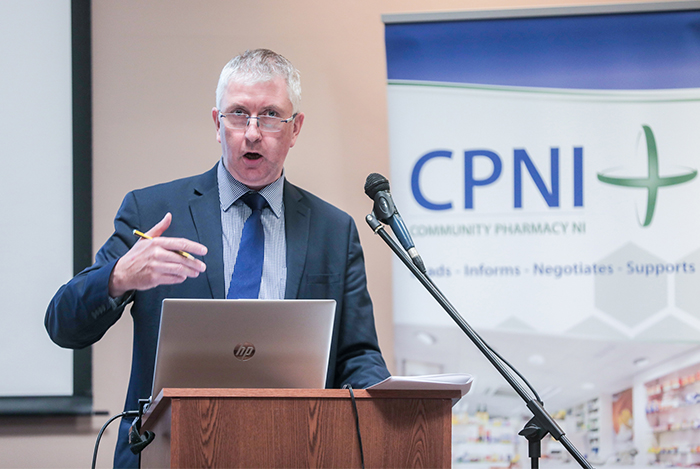Community pharmacists vote to press ahead with industrial action – funding pressures signal ‘end game’.
Community pharmacists have voted overwhelmingly to press ahead with industrial action on contractual and patient safety issues stating it is now ‘end game’ in the face of insurmountable funding pressures.
At a closed meeting in Belfast, ending at 11pm last night, 98% of community pharmacy contractors in attendance voted for action.
The meeting was attended by 95 contractors representing 418 pharmacies in Northern Ireland.
Community pharmacists say they have reached breaking point and have major concerns about how to maintain the safe and on-going supply of medicines as a result of serious underfunding and a work-force crisis in the sector due to a shortage of pharmacists and locums.
The decision on what action community pharmacists will take will be formalised in the coming weeks with many stating that the severity of the situation will force them into actions that they have never taken before.

Chief Executive of Community Pharmacy NI, Gerard Greene, said: “We have been warning the Department for years of this growing crisis. A litany of unresolved issues stemming from sustained underfunding now means that community pharmacists have reached breaking point.
“The decision to take action is not one reached lightly and we regret that the refusal of the Department to address this crisis has brought us to this, but our network is at the point where the safe delivery of crucial frontline services for patients could be compromised.
“Over 123,000 people visit pharmacies in Northern Ireland every single day. The ability to access this service and professional advice keeps people out of GP surgeries and hospitals.
“Community pharmacists already play an enhanced role in transforming our health service but until the Department engages in meaningful talks to stabilise community pharmacy funding and address the current issues, then it is only paying lip service.”
Community pharmacy contractor, Loretto McManus said: “Morale in the sector is at an all-time low, so the result of this ballot is no surprise. The refusal by the Department to acknowledge that there are serious issues in our sector is a significant problem and has led us to this outcome.
“Dispensing medicines is a role that is critical in maintaining the health of all the patients in our communities. It requires focus and attention to detail, when we have reached a point where we are now working excessive hours and the pharmacist’s health and mental well-being is compromised due to the unrelenting pressures, then we have serious concerns for patient safety that need to be put right immediately.
“Expert reports on transforming our health service say we must enhance community services to keep people out of hospital. The refusal to properly resource and support services like community pharmacy is a total contradiction of this.”
Bradley: urgent support needed for Community Pharmacy
SDLP Health spokesperson South DOwn MLA Sinead Bradley has responded to a 98% vote to press ahead with industrial action by community pharmacists. She said: “Despite apparent cross party consensus around the importance of local pharmacies in delivering vital services to the public, there is no evidence of practical support from the Department of Health. It is a damning indictment of this lack of support, that 98% of community pharmacies feel no other option but to take industrial action. The SDLP supports this difficult but necessary action.”

“Across the North community pharmacists are struggling; government funding has been cut, and local chemist shops are having to make staff redundant and reduce opening hours, ultimately damaging our communities.”
“Some years ago, the Compton Review, reinforced by the Bengoa plan, envisaged an enhanced role for Community Pharmacy in the transformation of how healthcare is provided here, but this intransigence will, I fear, lead to chemist closures and will have a severe impact on people’s access to healthcare.”
“I will be engaging with Health Minister Swann and colleagues on the Health Committee to see what action can be taken to support this vital sector.”


























